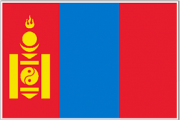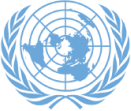Madame President,
Let me express my appreciation to you for convening today's High-Level Meeting on "Development cooperation in middle-income countries".
We are witnessing that middle-income countries have significantly contributed to global and regional development and economic stability. However, they confront particular challenges related to poverty, undiversified productive capacities and high export concentration on a limited set of commodities and are vulnerable to various external factors.
Madame President,
From my country's experience, poverty is the biggest challenge. The proportion of people who are living with incomes and consumption levels below the poverty line is quite high in Mongolia. One fifth of the population is living in poverty, especially in rural areas.
The Government of Mongolia aims to create conditions that allow its every citizen to be healthy, educated and employed as well as to reduce poverty, increase the share of its medium-income households, and improve people's livelihoods.
Mongolia has witnessed an economic resurge with an accelerated foreign trade turnover, robust expansion investment and budget surplus during the last two years. Mongolia's economic growth, which was 1.2 percent in 2016, has reached 6.3 percent in the first half of 2018. Thus, its improved fiscal integration and strong fiscal discipline have led to a significant improvement in the fiscal performance.
We are planning to present, during the HLPF in 2019, our Voluntary National Report on the implementation of the 2030 Agenda for Sustainable Development and share our best practices and lessons learnt.
Madame President,
We attach high importance to contributing to the South-South Cooperation through promoting interests of the landlocked developing countries. The International· Think Tank for Landlocked Developing Countries, initiated by Mongolia, was operationalized in 2018 as a full-fledged intergovernmental organization and is working to support LLDCs for full and effective implementation of the Vienna Programme of Action and the 2030 Agenda.
Madame President,
It is esse'?}ial for middle income countries. to mobilize development financing, improve competiveness, maximize trade potential, facilitate access to technological transfer and strengthen partnership and capacity building towards successful implementation of the 2030 Agenda. Hence, an efficient, effective and coordinated support from the UN, international financial organizations and development partners is much needed to that end.
I thank you.


